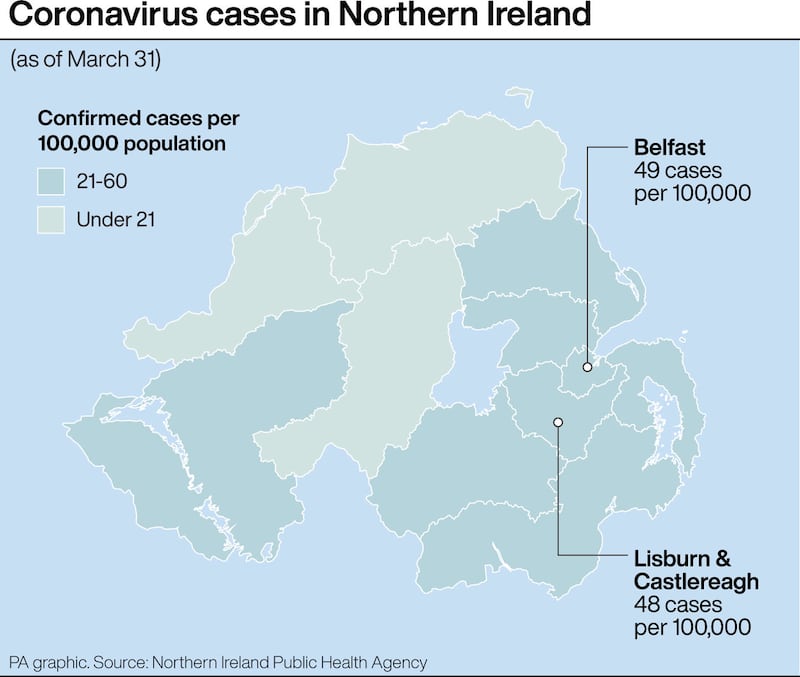The number of people who have died in Northern Ireland after contracting coronavirus has risen by six to 28, health officials said.
Testing has resulted in 53 new positive cases, bringing the total number of confirmed cases in the region to 586.
It comes as a former director at World Health Organisation (WHO) said the UK has the capacity to process tens of thousands more tests for coronavirus and must do so to end the lockdown.
Anthony Costello, professor of global health and sustainable development at University College London (UCL), criticised current efforts to increase testing and said moving to mass testing is the key to lifting sanctions on people’s lives.
It comes as politicians come under increasing pressure over testing in the UK, with fewer than 10,000 tests per day being carried out, according to the latest figures from Public Health England (PHE).

This is despite Health Secretary Matt Hancock saying a target of 10,000 per day had been hit. This is still way below the around 70,000 per day which Germany is achieving.
Testing of frontline NHS workers is being rolled out.
Asked whether British Prime Minister Boris Johnson was frustrated by the slow progress on testing, the PM’s spokesman said on Tuesday: “It’s absolutely an important issue and the Prime Minister and ministers want as much progress to be made on this as possible.
“We’ve been very clear that where there is additional capacity in the system, that should be being used for NHS workers.”
Testing in the UK has largely focused on hospital patients. PHE has said previously that it is not necessary to test all suspected cases in the community.
But, speaking to BBC Radio 4’s Today programme, Profesor Costello said a policy of mass community testing was essential to detect hotspots and eventually end the lockdown.
He said: “When we want to loosen up the lockdown, we want to have the control over that.
“By mass testing we will be able to detect new outbreaks and there will be much less disruption if we can do that rather than isolating the whole economy.
“In answer to ‘can we do it?’ – we have 44 molecular virology labs in the UK.
“If they were doing 400 tests a day, we would be up to Germany levels of testing and that is perfectly feasible.
“PHE were slow and controlled and only allowed non-PHE labs to start testing two weeks ago, but that was after the strategy shift to end community tests.”
He said the UK needed to be “more like” South Korea, adding: “If you look at Korea, they have done 490,000 tests. Their death rate is three per million and they have suppressed the virus.”
Asked whether the UK had capacity, he said: “I don’t see why we can’t get these 44 labs up and running, finding cases and testing.
“We must go to mass testing and when we remove the lockdown – I don’t think it will take six months, in all the Asian states it was six to eight weeks, even in Wuhan – then we will have a control mechanism which will enable us to wait, without socially distancing the whole country, and wait until we can get drugs or a vaccine for herd immunity.
“We do need a national lockdown for now but we want to get that lifted as soon as we can. Mass testing will be a way to do that.”








